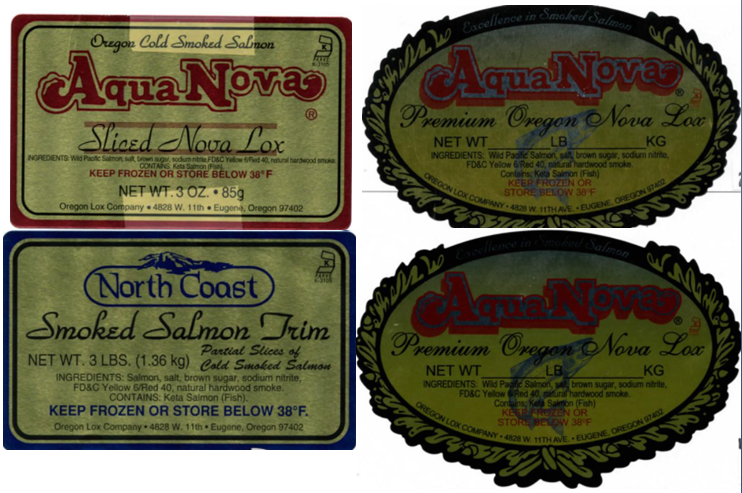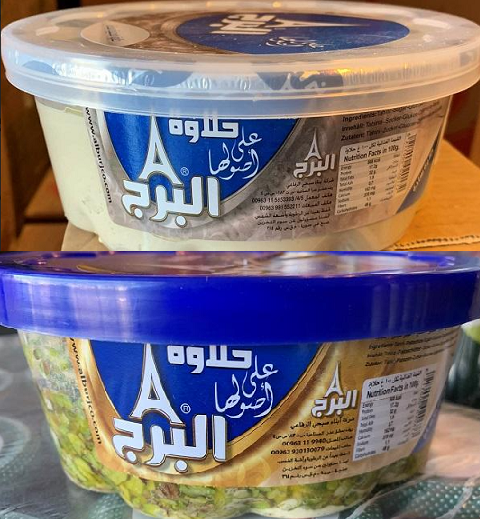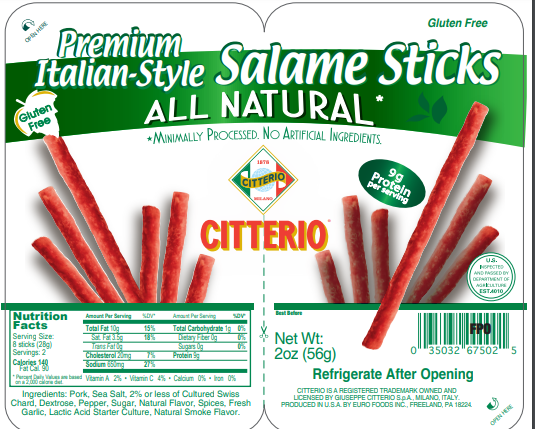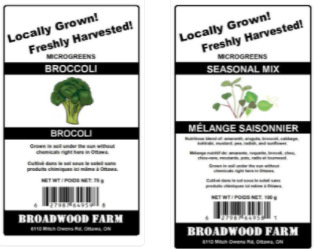The FDA reported that Oregon Lox Company of Eugene, Oregon recalled various Wild Cold Smoked Keta Salmon Lox brands because they can be contaminated with Listeria monocytogenes. Distributors distributed the affected Wild Cold Smoked Keta Salmon product in Alaska, California, Oregon, and Washington. The product was shipped frozen on common carriers. The affected Wild Cold Smoked Keta Salmon is packaged in plastic vacuum sealed packages and sold in various brands, sizes, and weights. No illnesses have been reported to date in connection with this product. The recall was the result of a routine sampling by the Washington State Department of Agriculture. @ https://www.fda.gov/safety/recalls-market-withdrawals-safety-alerts/oregon-lox-company-recalls-wild-cold-smoked-keta-salmon-lox-because-possible-health-risk?utm_medium=email&utm_source=govdelivery
ruth
November 11, 2021, Oregon Lox Company of Eugene, Oregon is issuing a voluntary recall of various brands of Wild Cold Smoked Keta Salmon Lox, specific lot number 22821, because it has the potential to be contaminated with Listeria rnonocytogenes, an organism which can cause serious and sometimes fata
ruth
According to the CFIA, Jabbour Export/Import (Edmonton, Alberta ) has recalled AlBurj branded Tahina and Halawa from the Canadian marketplace due to suspected Salmonella contamination. The recalled products are AlBurj (Arabic characters only) branded Tahina, sold in 800 gram tubs, AlBurj (Arabic characters only) branded Halawa Original (Arabic characters only), sold in 800 gram tubs, AlBurj (Arabic characters only) branded Halawa Pistachio Extra (Arabic characters only), sold in 800 gram tubs, AlBurj (Arabic characters only) branded Tahina, sold in 800 gram tubs, and AlBurj branded Tahina, sold in 18 kilogram pails. The recalled products were sold in Alberta. This recall was triggered by CFIA test results. There have been no reported illnesses associated with the consumption of these products.@ https://recalls-rappels.canada.ca/en/alert-recall/alburj-brand-tahina-and-halawa-recalled-due-salmonella
ruth
The USDA/FSIS reported that Euro Foods (Freeland, Pennsylvania) recalls approximately 119,091 pounds of salame stick products that may be contaminated with Salmonella. FSIS issued a public health alert for the salame stick products on October 29, 2021, believing that the product was no longer in commerce. However, following this alert, FSIS observed products available at one retail location, and two Citterio salame stick samples previously collected by the California Department of Public Health have tested positive for Salmonella. The following products are subject to recall 2-oz. packages containing Citterio “Premium Italian-Style Salame Sticks ALL NATURAL” with “best by” dates through January 23, 2022. FSIS has been working with the CDC and state public health partners to investigate a multistate outbreak of 31 Salmonella I 4,[5],12:i:- illnesses in 10 states with onset dates ranging from September 18, 2021, through October 18, 2021. Two unopened, intact packages of Citterio Italian-style Salame Sticks collected by the California Department of Public Health tested positive for Salmonella. These items were shipped to retail locations nationwide and exported to Bermuda. @ https://www.fsis.usda.gov/recalls-alerts/euro-foods-dba-citterio-usa-corp.-recalls-salame-stick-products-due-possible
ruth
According to the CFIA, Broadwood Farm (Ottawa, Ontario) recalls Broadwood Farm Broccoli Microgreens from the Canadian marketplace due to suspected Salmonella contamination. The recalled products are Broadwood Farm branded Broccoli Microgreens, sold in 75 gram bags, and Broadwood Farm branded Seasonal Mix Microgreens, sold in 100 gram bags. The recalled products have been sold in Ontario. @ https://recalls-rappels.canada.ca/en/alert-recall/certain-broadwood-farm-brand-microgreens-recalled-due-salmonella




